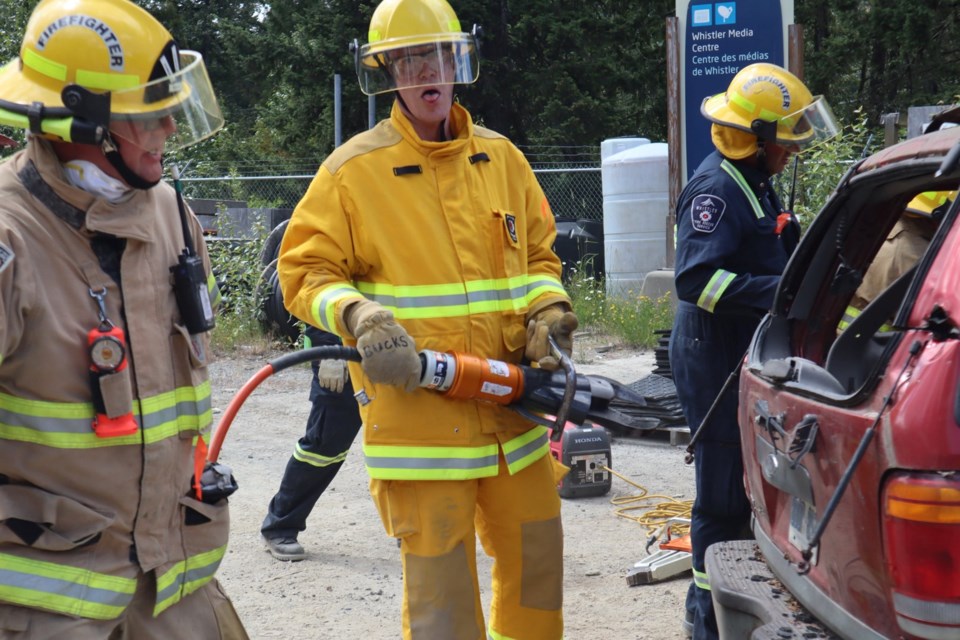There’s an old Twitter joke about journalism that only seems to get more truthful as time goes on.
“The hours are long and the pay is lousy,” the joke goes.
“But at least everybody hates you.”
It’s a fun joke. We have fun here.
Occasional existential/economic anxiety aside, I’ve never regretted my career choice, even if it was one made mostly out of a spoiled, selfish desire to exist in air-conditioned spaces (more on that later—after just a bit more navel-gazing, I promise).
For all its downsides, you’d be hard pressed to find employment that offers the same day-to-day variety or the breadth of hands-on learning experiences afforded by journalism.
Since starting in the field more than 10 years ago, my job has allowed me to stand on the back of fighter jets, and ride in helicopters and on ziplines. I’ve been backstage at music festivals, and spoken face to face with some of my favourite musicians. I’ve toured highly secure locations, trained as a police officer, tested out cutting-edge technology, and spent an afternoon pushing the limits of a drunk driver simulator (among countless other unique or just plain weird experiences).
But taking part in the Whistler Fire Rescue Service’s (WFRS) “Fire Ops 101” crash course with Whistler’s mayor and council in June 2019 remains one of the most memorable of “those” days—the days that make up for the long hours and the lousy pay and the fact that everyone hates you.
After gearing up in Whistler Village, we rode in a fire truck to the training yard on Highway 99. Over the next few hours, we ripped apart a car with WFRS auto extrication tools, felt the heat of a flashover in a makeshift sea-can training structure, put out a car fire, and climbed to the very top of the WFRS’ highest fire truck ladder.
My main takeaway? Being a firefighter is sweaty, dangerous work, and I’m more than happy to let someone else do it.
There’s a photo from that day that perfectly sums up my experience. It’s me, in my innocent, spotless turnout gear, holding the Jaws of Life and looking visibly exhausted.
Keep in mind that this was still just the idiot’s guide to firefighting—so gentle that even mayor and council managed with ease, and they are quite old.
When I look at that photo, there is mostly one word that comes to mind: hot.
And I’ve never handled the heat all that well.
In my younger days, I suffered more than one instance of severe heat stroke while doing manual labour in open fields—I blame my lily-white skin, and the fact that I was born in the darkest depths of a prairie winter.
A previous employer once referred to me as the type of guy who breaks into an uncontrollable fount of sweat at the mere mention of the word “work.”
I never forgot that description, because it is both hilarious and tragically accurate.
It was my severe aversion to the heat, ironically enough, that eventually drove me to journalism—it’s hard to get heat stroke when you’re sitting at an air-conditioned desk, I reasoned—which in turn has led to no fewer than three invitations to join volunteer fire departments.
Time is a flat circle, after all. Maybe there really is no escaping the heat.
I have no intentions of joining up with any fire departments anytime soon, but I’ve got immense respect for the work these men and women do—work that only seems to be getting more difficult with each passing year.
So it behooves me to try and make their jobs easier in any way that I can. Because have you ever had to put on full turnout gear and attempt to put out a fire? I have. It’s very hot.
May 1 to 7 marks Emergency Preparedness Week in Canada, and on May 7, many communities in B.C. are recognizing Wildfire and Emergency Preparedness Day.
There’s no better time to start preparing for the wildfire season ahead. Clean up your yard and FireSmart your property (you can book a free assessment through the Resort Municipality of Whistler); talk to your neighbours about their own preparedness; pack a to-go bag and make a plan to evacuate in case worse comes to worst.
While I’m not big on lecturing, I fully intend to stand on my editorial soapbox all summer long, lecturing anyone and everyone about the danger of their unattended campfires and their cigarette butts and roaches.
Because all of Whistler’s favourite pet problems—labour, housing, pay parking, Vail Resorts—will be rendered moot if we can’t protect this community from wildfire.
Consider that the argumentative conclusion to what is likely the first of many wildfire diatribes to come: we need to be FireSmart so we all have somewhere to argue.
Find more info and resources at whistler.ca/wildfire.





